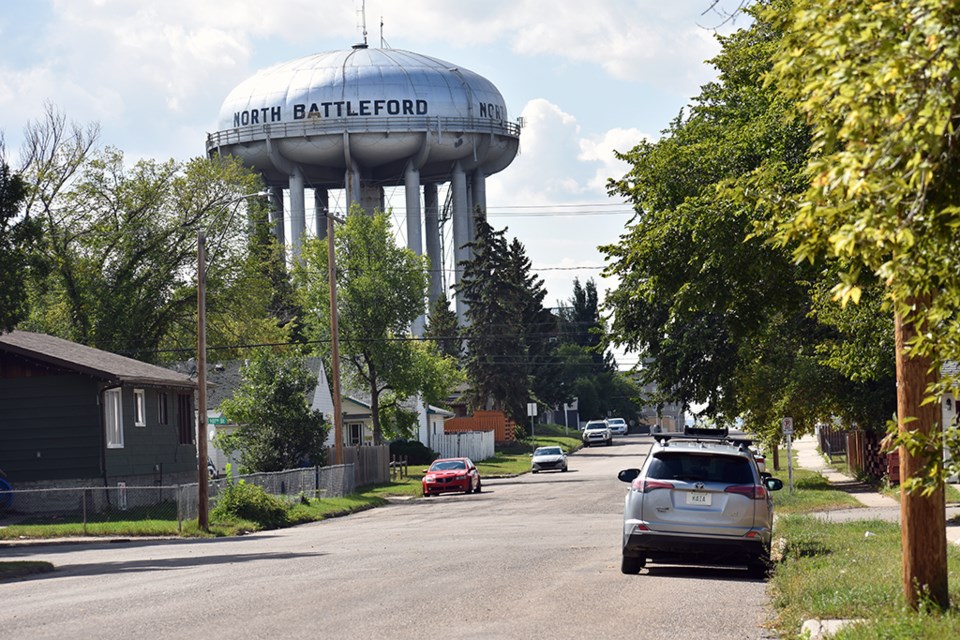THE BATTLEFORDS — Nicole Sarauer (MLA for Regina Douglas Park) joined Tom Kroczynski (the NDP candidate for The Battlefords) on Wednesday, Dec.13 to see what the Battlefords had to say about the government's record on policing and public safety.
"First of all, Tom (Kroczynski), we're really happy to have him as our candidate for the general election in 2024. In every place we've gone, everybody's known him already, which is fantastic. It's always good to have a candidate who is well-known in the community and has already established that trust in his ability to be able to serve," Sarauer began.
"It's one thing we see as a challenge of this current government. Just being long in the tooth, they've stopped listening to those who are on the front lines, those who are experts in [the] community," she said, adding that the solutions are there, but only if you listen to the community.
"And we're not seeing that with this current government."
The pair met with the Town of Battleford, the City of North Battleford, the RCMP and Battlefords and Area Sexual Assault Centre (BASAC).
She noted that when it comes to policing and public safety in the Battlefords, the community often does get a bad rap from the national media.
"The challenges you see here, we see throughout the province, issues with poverty, homelessness, mental health and addictions that you see in the Battlefords exist throughout the province. And I do think that Battlefords has a really great story to tell. And they're often painted in an unfair light."
But beyond the stigma attached to the Battlefords, she also noted that changes to the Saskatchewan Income Support (SIS) program, better funding for mental health and addiction treatment, and supporting existing policing services rather than the recently announced marshal program would be of greater help.
"And how that has really forced a lot of vulnerable community members to become homeless, where they're not able to get any mental health or addictions, treatment supports. You see more of that visibly, and that's a direct result of changes to the Social Assistance Program ... that's something that government could solve tomorrow if they chose to," she added.
Regarding BASAC, she said they do incredible work on a shoestring budget, but also teach children about healthy relationships. Now they've been removed from the classroom poses a danger to the community, she says.
"When we don't do that, we see a higher rate of violence, a higher rate of crime, and then that falls on police, again, an already overstretched resource," she said.
"We have a government and a minister [Jeremy Cockrill] that's the MLA for this area that has removed healthy relationship education from schools. And he doesn't have to go far in his own community to hear the devastating effect that's had on students and on our rates of violence.
"And when we have a province that has the second highest rates of sexual assault in the country, the last thing we should have is a minister who's willing to cancel healthy relationship education from our schools."
In light of recent news about the conciliation process between the Saskatchewan Teachers' Federation (STF) going nowhere, recent billboard campaigns, and a well-attended fall rally in the Battlefords, Kroczynski and Sarauer were asked if they had any comments about education.
"Everyone we speak to in education is saying this is this is harder than it's ever been. And I think the other thing, too, that goes along with that lack of support, lack of funding and lack of appreciation, is people are worried about where it's going next," he said.
"It's like, we're still surviving this year, although people are feeling burned out, they're exhausted. They're scrambling to find enough money to cover all the needs in a school ... from lunches to student supports."
"What is this government's view of public education in the future?" he asks, describing what he felt has been crisis after crisis.
"Teachers are resilient, and we find ways to support one another, and to support our students and to support the families, of course ... [but] we're not optimistic about the future."
Though he noted he couldn't comment on behalf of the STF, he said he'd have to assume sanctions were coming at some point.
When asked what an NDP government would do for education, they said,
"We have local elected school boards for a reason. They're closest connected to the community, and they can tell higher levels like the provincial government, what is needed and what is not needed in terms of support for their specific communities. We have a government that has been eroding autonomy with our school boards for the past 16 years, and has stopped listening altogether to locally elected leadership."
But the other piece, Sarauer said, is about prioritizing priorities when deciding what to fund.
"So instead of spending million dollars on millions of dollars on what we would call mismanagement, you know, IT programs that don't work, million dollar trip to Dubai, funding for schools should be the priority of any government that wants to invest in the future of its province."
"And the best way you can invest in the future of your province is to invest in your children. That way they'll be fantastic functioning members of society when they graduate from school.
"It's not that complicated, but we have a government that has completely lost the plot in terms of prioritizing and listening."Keep your news a touch away by bookmarking The News-Optimist homepage at this link.




